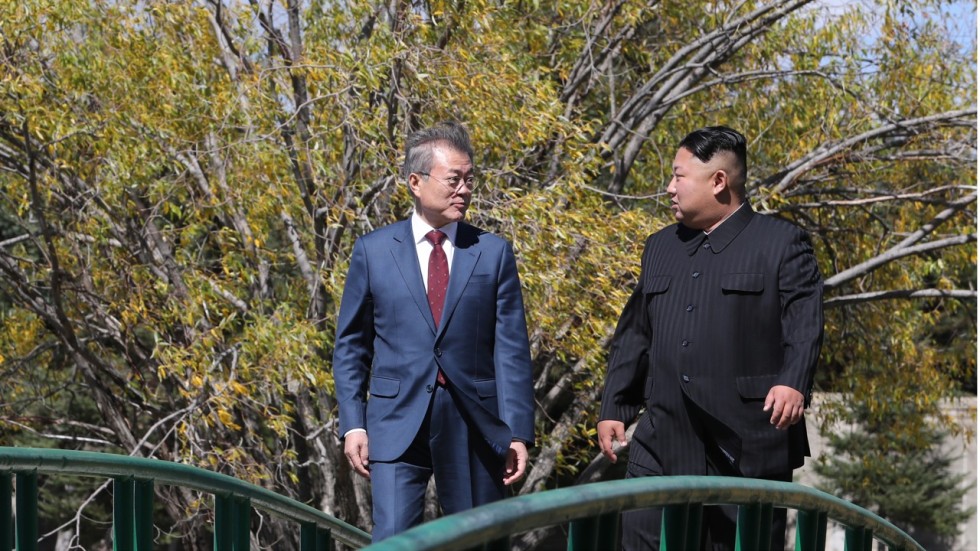
North Korean leader Kim Jong-un could give up his nuclear weapons “in the near future” and the ball is now in Washington’s court, South Korean President Moon Jae-in said after returning on Thursday from his three-day trip across the border.
“North Korea had already dismantled its Punggye-ri nuclear tests sites,” Moon told reporters at Seoul Press Centre. “If it dismantles the Tongchang-ri engine test site and launch pad, it can no longer carry out nuclear experiments or missile launches ... It means North Korea is dismantling its future nuclear capability.”
However, Moon made it clear it was up to the US to resume talks to work out how to deal with Pyongyang’s nuclear arsenal.
“To achieve complete denuclearisation, North Korea must permanently dismantle its nuclear facilities – including its Yongbyon facilities – and the existing nuclear warheads and missiles … That is something to be dealt with during the US-North Korea dialogue,” Moon said.
A Trump-Kim bridge: has Korean summit proved moon is a master diplomat?
After two days of talks in Pyongyang, Moon and Kim on Wednesday signed a joint declaration to rid the Korean Peninsula of nuclear weapons, with the North inviting international observers to witness the dismantling of the Tongchang-ri missile test site.
The two leaders capped their summit on Thursday with a visit to Mount Paektu, the mythological birthplace of the Korean people and one of the most powerful symbols in North Korean propaganda.
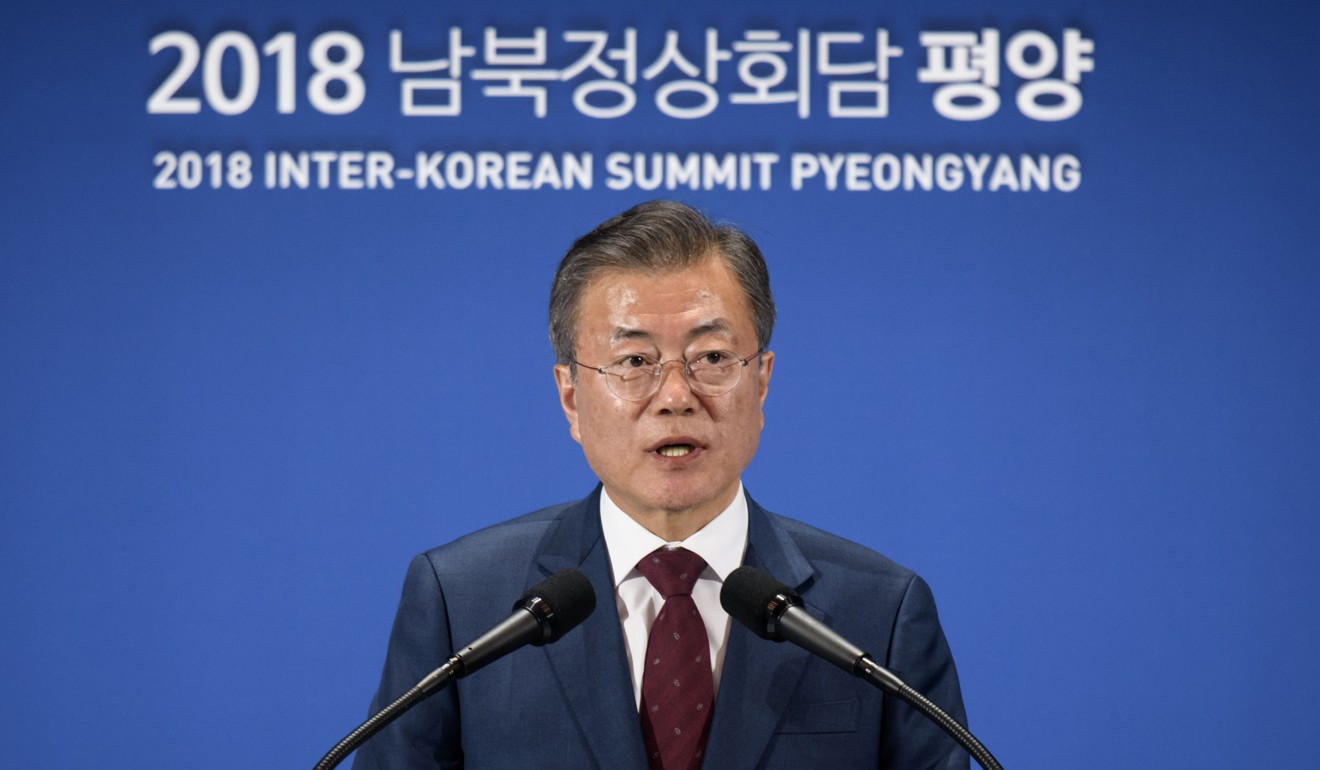
In Seoul, Moon clarified a comment he made on Wednesday that the Americans needed to take “corresponding measures” for North Korea to take further steps toward denuclearisation, such as permanently dismantling its Yongbyon nuclear facility. He explained that the “measures” included ending hostile policies and “guaranteeing the North’s safety”.
With an ally like Trump, does South Korea’s president Moon Jae-in really need an adversary?
Previously, Pyongyang has asked for “phased and synchronised measures” for denuclearisation, meaning the international community would slowly relax or drop sanctions with each step in the denuclearisation process, rather than waiting until its completion.
“Chairman Kim has repeatedly expressed his strong will to denuclearise,” Moon said, adding that the North Korean leader wanted to “focus on economic development” as soon as possible.
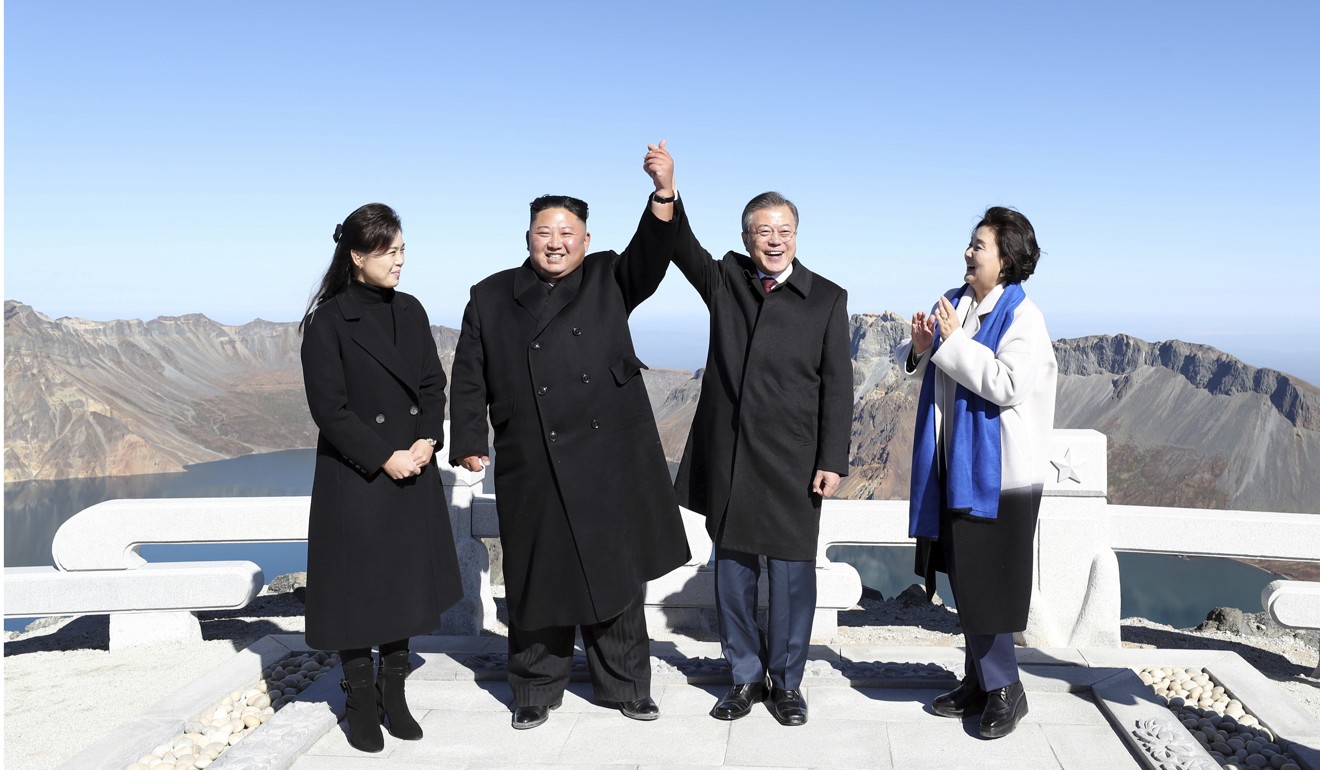
He said Kim was also waiting for the US to deliver promises made to him during his June summit with US President Donald Trump in Singapore, including a declaration officially ending the Korean War. Since then, negotiations have stalled, with the two leaders apparently at odds over how to proceed.
Moon will meet Trump in New York next week and discuss the possibility of a second US-North Korea summit, the Blue House said on Thursday. The South Korean leader is reported to have a message for Trump from Kim.
Moon gets ‘standing ovation’ after first ever speech by South Korean leader to North Koreans
This week’s summit injected some optimism into talk of another meeting. On Wednesday, Trump hailed the Pyongyang summit, telling reporters outside the White House there had been “tremendous progress” and it was “very good news”.
US Secretary of State Mike Pompeo said he had invited his North Korean counterpart Ri Yong-ho to a meeting in New York, since he would be in the city for the United Nations General Assembly meeting.
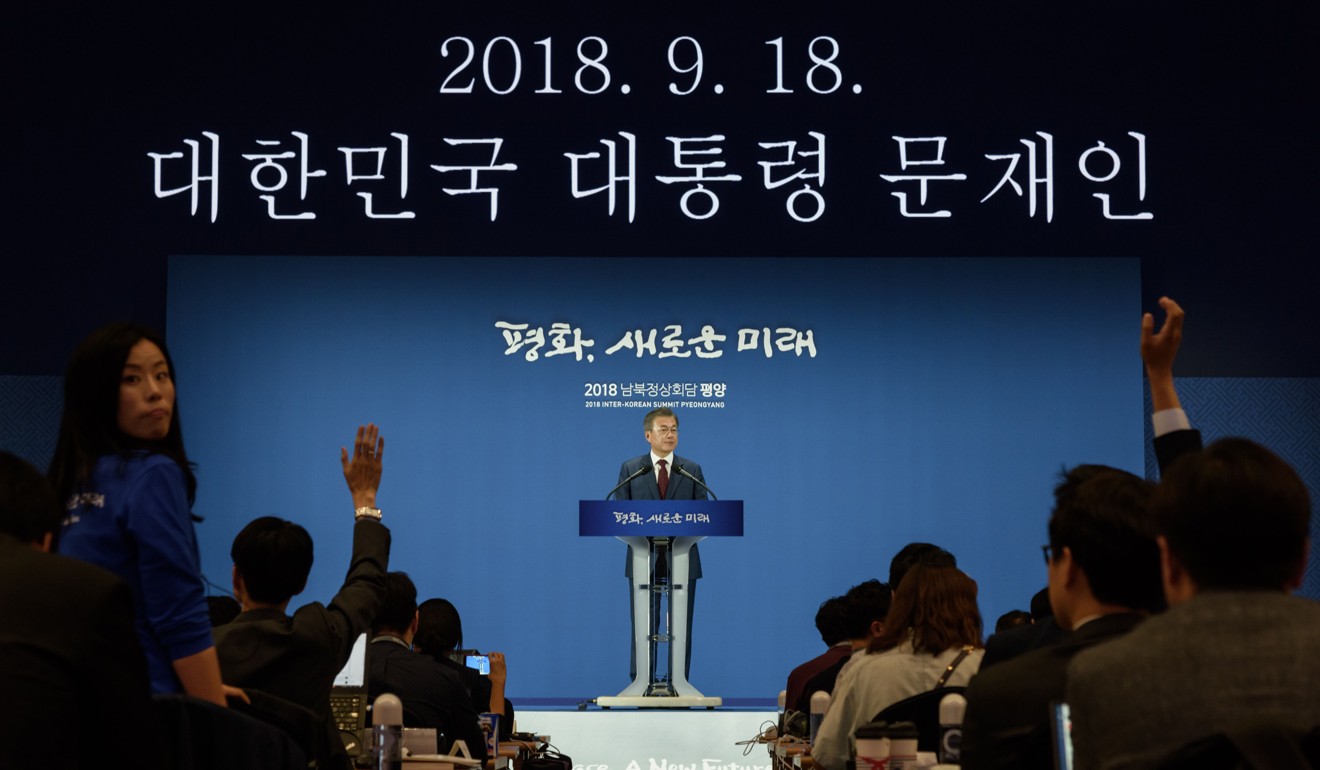
But denuclearisation, which Pompeo said must be finished by January 2021, is still going to be a tricky task unless the North takes some steps itself, such as providing details of what nuclear weapons it has, according to analysts.
“Declaring a nuclear weapons list is at the core of the negotiations,” said Woo Jung-yeop, a research fellow at the Sejong Institute in Seoul. He said that South Korea could possibly mediate between the US and North Korea in exchanging the list for an official end of war declaration.
Jeong Seong-jang, a North Korea expert at the Sejong Institute, also noted that the US and North Korea were still largely divided over denuclearisation.
“Perhaps trilateral talks – including the two Koreas and the US – are needed to discuss the normalisation of US-North Korea relations, so the South may mediate,” Jeong said.
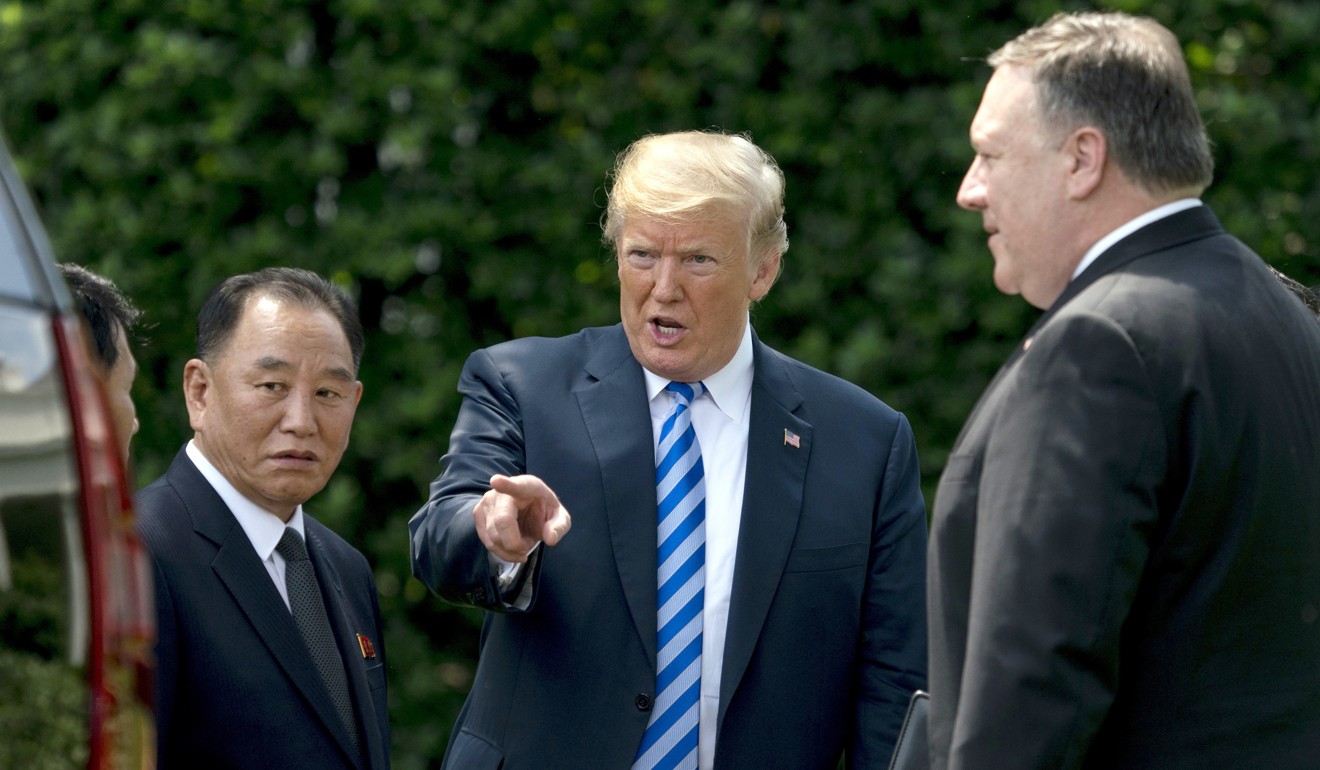
But Harry Kazianis, director of defence studies at the Washington-based Centre for the National Interest, said the US could eventually accept North Korea’s step-by-step approach to ending its nuclear programme.
“If Pyongyang shows its will to make concessions first, Trump will match the progress. Some of the UN Security Council resolutions may be lifted, whilst Seoul may also lift unilateral sanctions,” Kazianis said. “Now is the time. If there is a grand bargain on the Korean peninsula, it’s going to be in the next few weeks.”







